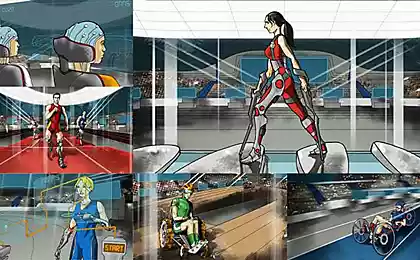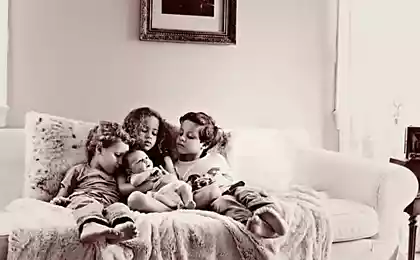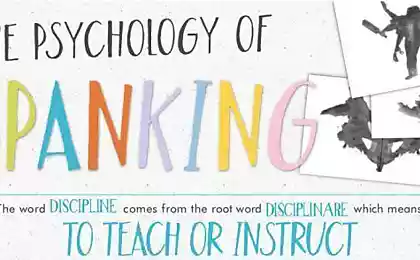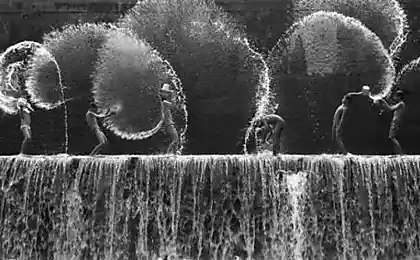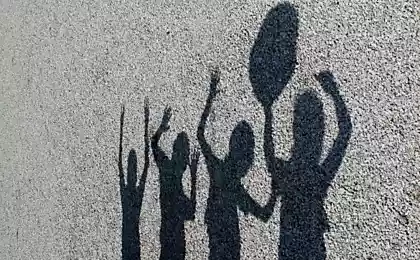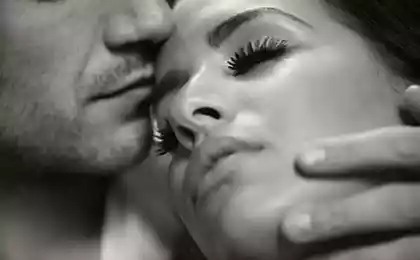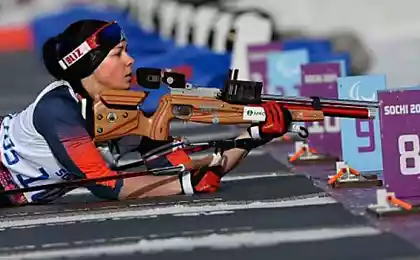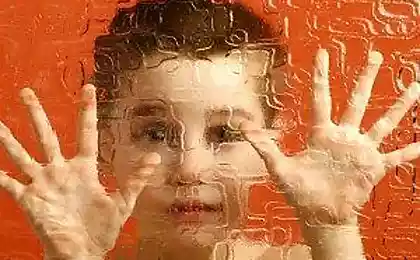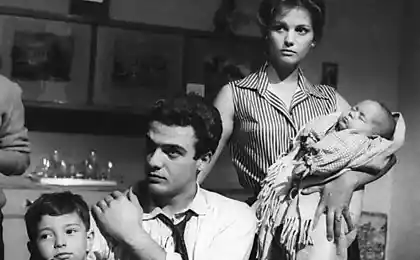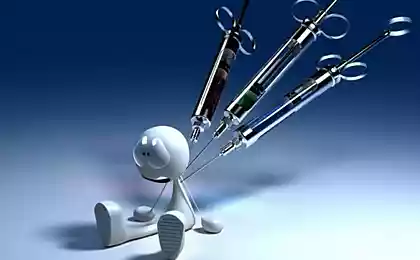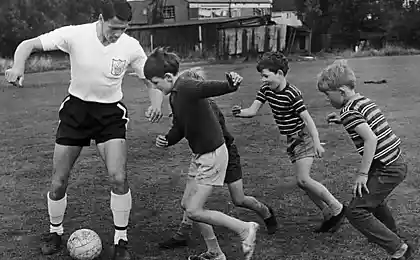222
It doesn’t scare kids, it scares adults.
How do we treat people who are not like others? Avoid? Try not to look at them and look down when they happen to get in our way? We decided to check Moscow cafes, sports venues and fashion stores for adequacy and went for a walk with six young disabled people along the route: Pool "Olympic" - Moscow metro - Vogue Safe - boutiques of the Tretyakov Passage.
Our heroes were not chosen by chance. These are sports boys and girls, most of whom are Paralympic swimmers. We talked about prosthetics, dreams and hobbies, watched passers-by and attendants.
Olympic Pool
We meet with our first heroes: journalist Dmitry Ignatov and world champion Anastasia Diodorova. Pool "Olympic" - a place of acquaintances and meetings of para-athletes, there they go daily to training, there Dmitry met with all the guys with whom we had to walk. On the way, children talk about the attitude of the state to the disabled.
DI: Of course, Russia has already begun to make knees and other parts, but they are worse than those made twenty years ago abroad. And domestic prostheses are simply ridiculous, if with the help of Bebionic (bionic hand-prosthesis) you can even take a glass, then the Russian prosthesis must make all movements mechanically, and somehow help the prosthesis to make movements. It's wildly uncomfortable.
I have a dream prosthesis, multifunctional and modern, in which I could swim, but to get it, I have to convince the state that it is worthy. There are only four such prostheses throughout Russia, and it is not easy to do this.
A.D.: There are state programs that help to get prostheses, there is even a provision that states that every year a person is put a prosthesis, but these are prostheses from the category of cosmetic, just for the appearance. Why would I? So as not to embarrass people? But in our country, they treat people with disabilities quite strangely.
The guys in the Olympic are looked at as their own: they still appear there every day, or even twice. But to be honest, the open faces and smiles of our friends draw attention to themselves, it is not immediately clear that you have a person with an atypical number of limbs.
MOSMETRO
On the subway, no one pays attention to the guys, Dima manages to tell a funny story until our laughter drowns out the noise of the train:
D.I.: Yes, the reaction or indifference of people is often striking, although recently there was a funny case: I come back late from training and pass the child with my mother, the child all the street screaming: “Mom, look, Iron Man!” Of course, my mother and I laughed. But that rarely happens.”
We enter a dense carriage, the automatic announcer announces: "Give way to pregnant women and disabled people." But in the direction of the guys no one looks, or rather, casting a glance at the prosthesis or noticing that the girl has no arms, sitting people just quickly lower their eyes, turn away. Healthy passengers stubbornly pretend not to see people with disabilities.
D.I.: Please note that no one ever gives way. It's as if it's not accepted”.
AJ: Abroad, of course, people are always in a hurry to help, to free the seat. The difference is huge. And not just among ordinary people. In Russia, Paralympic swimming is considered an unpopular sport, and in general, Paralympic sports are not popular. If healthy athletes sit on steep bases, then we go to some Taganrog, where it is inconvenient to get to the pool, and there is no equipment in the gym. These are all small things, but they are noticeable in the constant discomfort and lack of technical equipment. For foreigners, all athletes are equated so that there are good bases and conditions for training for Paralympians.
At the Bolshoi Theatre, we meet with two more guys: Igor Solonenko and Daria Gladysheva, slowly moving aside.Vogue cafe.
In the cafe there is a round table, ordered in advance. Our not quite ordinary company is seated right at the entrance, we ask to the window, but the tables at the window are immediately reserved and empty all the time while we are in the restaurant. The precipitation remains unpleasant. But a photo of our fun company quickly appears on Instagram Vogue Safe a minute after we are already heading to the Tretyakov Passage with the caption: “Guys, you are cool, come to us again.”
Igor: People have a strange reaction. Some might say, “Stay away, you’re scaring the kids.” But children, of course, it does not scare, frightens adults, the child is just curious and interesting - he learns the world.
We have to move on. Ahead is the final point: a couple of fashion boutiques.
TRETEJAKOV'S TRADE
At Tom Ford we are greeted with eyes wide open. No one comes there in such a large crowd, and there are also people with special needs. But we must give credit: the staff in the empty rooms after a silent pause and a break in the template began to fuss, and the number of sellers in five minutes after our arrival doubled, and everyone talked to each other on radios.
“Please give the two girls elegant evening dresses,” we asked at Tom Ford, “fit for you to understand.” The manager is lost, Daria is shy, but as a result, after five minutes, giggles are heard from the fitting rooms: the girls measure five outfits, and go out at the whole parade.
We go to Lanvin with the guys: “We need costumes to meet Putin, we are Paralympic champions, we have a solemn award ceremony.” The manager falls into a slight suspended animation, but immediately is quickly involved in the game and even insists on a tailor to sew Pavel's suit.
Igor is selected a full set: from shirt to shoes, Dima gets a classic jacket, Pasha is trying to sew a shirt. After ten minutes, the atmosphere of Tretyakovskiy becomes relaxed and warm: next to our heroes it is impossible not to start smiling and joking.
After fitting and shooting, the sellers part with us as with relatives: impressions to Tretyakovskiy’s employees will be enough until the end of the working day.
The athletes leave the last point of the route cheerfully, however, just as they started it. They are generally like this: ready for adventure, cheerful and more sensitive than passengers on the subway, with good self-irony and the ability to hold the blow of life. Such people do not hesitate to ask for advice and help, which they certainly will not refuse.
Igor Solonenko, Pavel Martyanov, Dmitry Ignatov, Dmitry Grigoriev with singer Sati Casanova at Vogue Fashion Night Out 2015, in the department store "Color", in the core of Fashion Verdict Sport, as part of the LIVE campaign, in T-shirts of the Fashion Verdict Sport and LivingVega collaboration.
Tips for everyone from Paralympic champions:
Dima has been swimming for a year and a half. A student of St. Petersburg University, graduated from the last course at the Faculty of Media Relations, practiced on the TV channel and conducted a program about different men's gadgets and toys. Dima decided that if he was telling you how to be a tough man, then you need to join the army. The young recruit was to serve under Chekhov, a war correspondent, but Dima was sent to the North. During the redeployment, a rocket launcher fell on the children, a brave journalist woke up in the hospital, without a leg. @dvignatov
Anastasia Diodorova, parasportsman, world champion, 25 years old:
At three, the girl was electrocuted. Now Nastya is a multiple world champion, has been swimming for the past thirteen years. “When it happened, the company responsible for the accident financed my prosthetics. At the age of five, I had the coolest prostheses at the time, but in two years I had already learned to do everything myself: with my feet. The prostheses that came after were very heavy and useless. I couldn’t do the trivial things: open the door, take the phone.” @santakroshkalia
Igor Solonenko, parasportsman, student, 20 years old:
Igor has been swimming for ten years. "I have cerebral palsy. Yes, of course, it's not as conspicuous as missing limbs. It helped me a lot that my mother worked with me, and of course swimming. Swimming works on all muscle groups. The disease itself is that the bones grow, and the muscles behind them do not keep up. They are tense and make movement difficult. Swimming helps muscles grow faster and catch up with bones. In the future, I want to teach sports to people with disabilities like me. @ololon_96
Daria Gladysheva, parasportsman, champion, coach, 25 years old:
Born disabled. He has been swimming for eighteen years. This summer I plan to go to another university, to sports management – I want to organize various sports events. I'm swimming now and I'm doing nothing but helping the coach with the junior groups. @daryaromanowa
Pavel Martyanov, parasportsman, student, 20 years old:
The boy was struck 10,000 volts in the village. The local hospital smeared hands with Vishnevsky ointment and two days looking for a car to take the victim to the city. As a result, KAMAZ crashed into the car on the Moscow Ring Road, and the police took Pavel to the children's burn center. The doctors said that the hand could have been saved if they had arrived immediately, and the hand just boiled. Pasha started swimming eight years ago.
“I don’t want to be a teacher, I want to be a fitness instructor. I will help ordinary disabled people who do not aspire to go to professional sports, because they are allowed late in age. But I'm going to get to the top of the sport, of course, I want to earn an apartment! @plovunec
Dmitry Grigoriev, parasportsman, world champion, 22 years old:
Dmitry was born with a small birthmark on his leg, a hymangioma. When the boy began to swim at the age of six, his leg began to swell, and the birthmark was removed. The doctor said it was a simple cosmetic surgery, but instead of cutting the stain, it was burned along with the nerve to the bone, and three months later, when the cast was opened, it turned out that the foot was drooping and not working. The athlete has been swimming for nineteen years: When I was swimming with healthy guys, they looked at me, then I switched to invasport – Paralympic swimming. In the first two months it was wild: you came to the competition and saw there 100-150 disabled people with varying degrees of severity - the look is frightening. Later I got to know everyone better and realized that all the cool and fun guys. Now, after winning in London, I bought an apartment and moved away from my parents - happy, playing guitar sometimes, I went to English, I need to develop myself.
P.S. And remember, just by changing your consciousness – together we change the world!
Join us on Facebook, VKontakte, Odnoklasniki
Source: livingvega.com/blogs/articles/44198145-
Our heroes were not chosen by chance. These are sports boys and girls, most of whom are Paralympic swimmers. We talked about prosthetics, dreams and hobbies, watched passers-by and attendants.
Olympic Pool
We meet with our first heroes: journalist Dmitry Ignatov and world champion Anastasia Diodorova. Pool "Olympic" - a place of acquaintances and meetings of para-athletes, there they go daily to training, there Dmitry met with all the guys with whom we had to walk. On the way, children talk about the attitude of the state to the disabled.
DI: Of course, Russia has already begun to make knees and other parts, but they are worse than those made twenty years ago abroad. And domestic prostheses are simply ridiculous, if with the help of Bebionic (bionic hand-prosthesis) you can even take a glass, then the Russian prosthesis must make all movements mechanically, and somehow help the prosthesis to make movements. It's wildly uncomfortable.
I have a dream prosthesis, multifunctional and modern, in which I could swim, but to get it, I have to convince the state that it is worthy. There are only four such prostheses throughout Russia, and it is not easy to do this.
A.D.: There are state programs that help to get prostheses, there is even a provision that states that every year a person is put a prosthesis, but these are prostheses from the category of cosmetic, just for the appearance. Why would I? So as not to embarrass people? But in our country, they treat people with disabilities quite strangely.
The guys in the Olympic are looked at as their own: they still appear there every day, or even twice. But to be honest, the open faces and smiles of our friends draw attention to themselves, it is not immediately clear that you have a person with an atypical number of limbs.
MOSMETRO
On the subway, no one pays attention to the guys, Dima manages to tell a funny story until our laughter drowns out the noise of the train:
D.I.: Yes, the reaction or indifference of people is often striking, although recently there was a funny case: I come back late from training and pass the child with my mother, the child all the street screaming: “Mom, look, Iron Man!” Of course, my mother and I laughed. But that rarely happens.”
We enter a dense carriage, the automatic announcer announces: "Give way to pregnant women and disabled people." But in the direction of the guys no one looks, or rather, casting a glance at the prosthesis or noticing that the girl has no arms, sitting people just quickly lower their eyes, turn away. Healthy passengers stubbornly pretend not to see people with disabilities.
D.I.: Please note that no one ever gives way. It's as if it's not accepted”.
AJ: Abroad, of course, people are always in a hurry to help, to free the seat. The difference is huge. And not just among ordinary people. In Russia, Paralympic swimming is considered an unpopular sport, and in general, Paralympic sports are not popular. If healthy athletes sit on steep bases, then we go to some Taganrog, where it is inconvenient to get to the pool, and there is no equipment in the gym. These are all small things, but they are noticeable in the constant discomfort and lack of technical equipment. For foreigners, all athletes are equated so that there are good bases and conditions for training for Paralympians.
At the Bolshoi Theatre, we meet with two more guys: Igor Solonenko and Daria Gladysheva, slowly moving aside.Vogue cafe.
In the cafe there is a round table, ordered in advance. Our not quite ordinary company is seated right at the entrance, we ask to the window, but the tables at the window are immediately reserved and empty all the time while we are in the restaurant. The precipitation remains unpleasant. But a photo of our fun company quickly appears on Instagram Vogue Safe a minute after we are already heading to the Tretyakov Passage with the caption: “Guys, you are cool, come to us again.”
Igor: People have a strange reaction. Some might say, “Stay away, you’re scaring the kids.” But children, of course, it does not scare, frightens adults, the child is just curious and interesting - he learns the world.
We have to move on. Ahead is the final point: a couple of fashion boutiques.
TRETEJAKOV'S TRADE
At Tom Ford we are greeted with eyes wide open. No one comes there in such a large crowd, and there are also people with special needs. But we must give credit: the staff in the empty rooms after a silent pause and a break in the template began to fuss, and the number of sellers in five minutes after our arrival doubled, and everyone talked to each other on radios.
“Please give the two girls elegant evening dresses,” we asked at Tom Ford, “fit for you to understand.” The manager is lost, Daria is shy, but as a result, after five minutes, giggles are heard from the fitting rooms: the girls measure five outfits, and go out at the whole parade.
We go to Lanvin with the guys: “We need costumes to meet Putin, we are Paralympic champions, we have a solemn award ceremony.” The manager falls into a slight suspended animation, but immediately is quickly involved in the game and even insists on a tailor to sew Pavel's suit.
Igor is selected a full set: from shirt to shoes, Dima gets a classic jacket, Pasha is trying to sew a shirt. After ten minutes, the atmosphere of Tretyakovskiy becomes relaxed and warm: next to our heroes it is impossible not to start smiling and joking.
After fitting and shooting, the sellers part with us as with relatives: impressions to Tretyakovskiy’s employees will be enough until the end of the working day.
The athletes leave the last point of the route cheerfully, however, just as they started it. They are generally like this: ready for adventure, cheerful and more sensitive than passengers on the subway, with good self-irony and the ability to hold the blow of life. Such people do not hesitate to ask for advice and help, which they certainly will not refuse.
Igor Solonenko, Pavel Martyanov, Dmitry Ignatov, Dmitry Grigoriev with singer Sati Casanova at Vogue Fashion Night Out 2015, in the department store "Color", in the core of Fashion Verdict Sport, as part of the LIVE campaign, in T-shirts of the Fashion Verdict Sport and LivingVega collaboration.
Tips for everyone from Paralympic champions:
- Set a goal: to lose weight, to be healthy.
- Take it higher, you will achieve more. Be more optimistic about yourself, love yourself, and don’t sit at home like sluggish sausages!
- Take care of yourself, develop! Not only physically: the more versatile a person is, the more interesting it is to communicate with him. I paint pictures. Feet. I look for inspiration in sunsets, I love them, there are so many colors.
- Follow the regime of the day and do not miss training. And it will become a habit.
- Change your social circle if it doesn’t suit you.
- Set goals, not look for motivation. At least in order not to shift this goal to children in the future, as is often the case with parents.
- Follow us on Instagram.
Dima has been swimming for a year and a half. A student of St. Petersburg University, graduated from the last course at the Faculty of Media Relations, practiced on the TV channel and conducted a program about different men's gadgets and toys. Dima decided that if he was telling you how to be a tough man, then you need to join the army. The young recruit was to serve under Chekhov, a war correspondent, but Dima was sent to the North. During the redeployment, a rocket launcher fell on the children, a brave journalist woke up in the hospital, without a leg. @dvignatov
Anastasia Diodorova, parasportsman, world champion, 25 years old:
At three, the girl was electrocuted. Now Nastya is a multiple world champion, has been swimming for the past thirteen years. “When it happened, the company responsible for the accident financed my prosthetics. At the age of five, I had the coolest prostheses at the time, but in two years I had already learned to do everything myself: with my feet. The prostheses that came after were very heavy and useless. I couldn’t do the trivial things: open the door, take the phone.” @santakroshkalia
Igor Solonenko, parasportsman, student, 20 years old:
Igor has been swimming for ten years. "I have cerebral palsy. Yes, of course, it's not as conspicuous as missing limbs. It helped me a lot that my mother worked with me, and of course swimming. Swimming works on all muscle groups. The disease itself is that the bones grow, and the muscles behind them do not keep up. They are tense and make movement difficult. Swimming helps muscles grow faster and catch up with bones. In the future, I want to teach sports to people with disabilities like me. @ololon_96
Daria Gladysheva, parasportsman, champion, coach, 25 years old:
Born disabled. He has been swimming for eighteen years. This summer I plan to go to another university, to sports management – I want to organize various sports events. I'm swimming now and I'm doing nothing but helping the coach with the junior groups. @daryaromanowa
Pavel Martyanov, parasportsman, student, 20 years old:
The boy was struck 10,000 volts in the village. The local hospital smeared hands with Vishnevsky ointment and two days looking for a car to take the victim to the city. As a result, KAMAZ crashed into the car on the Moscow Ring Road, and the police took Pavel to the children's burn center. The doctors said that the hand could have been saved if they had arrived immediately, and the hand just boiled. Pasha started swimming eight years ago.
“I don’t want to be a teacher, I want to be a fitness instructor. I will help ordinary disabled people who do not aspire to go to professional sports, because they are allowed late in age. But I'm going to get to the top of the sport, of course, I want to earn an apartment! @plovunec
Dmitry Grigoriev, parasportsman, world champion, 22 years old:
Dmitry was born with a small birthmark on his leg, a hymangioma. When the boy began to swim at the age of six, his leg began to swell, and the birthmark was removed. The doctor said it was a simple cosmetic surgery, but instead of cutting the stain, it was burned along with the nerve to the bone, and three months later, when the cast was opened, it turned out that the foot was drooping and not working. The athlete has been swimming for nineteen years: When I was swimming with healthy guys, they looked at me, then I switched to invasport – Paralympic swimming. In the first two months it was wild: you came to the competition and saw there 100-150 disabled people with varying degrees of severity - the look is frightening. Later I got to know everyone better and realized that all the cool and fun guys. Now, after winning in London, I bought an apartment and moved away from my parents - happy, playing guitar sometimes, I went to English, I need to develop myself.
P.S. And remember, just by changing your consciousness – together we change the world!
Join us on Facebook, VKontakte, Odnoklasniki
Source: livingvega.com/blogs/articles/44198145-
Su-Jok-therapy: a method of resuscitation
The species roses or wild roses: the best varieties for Your garden

